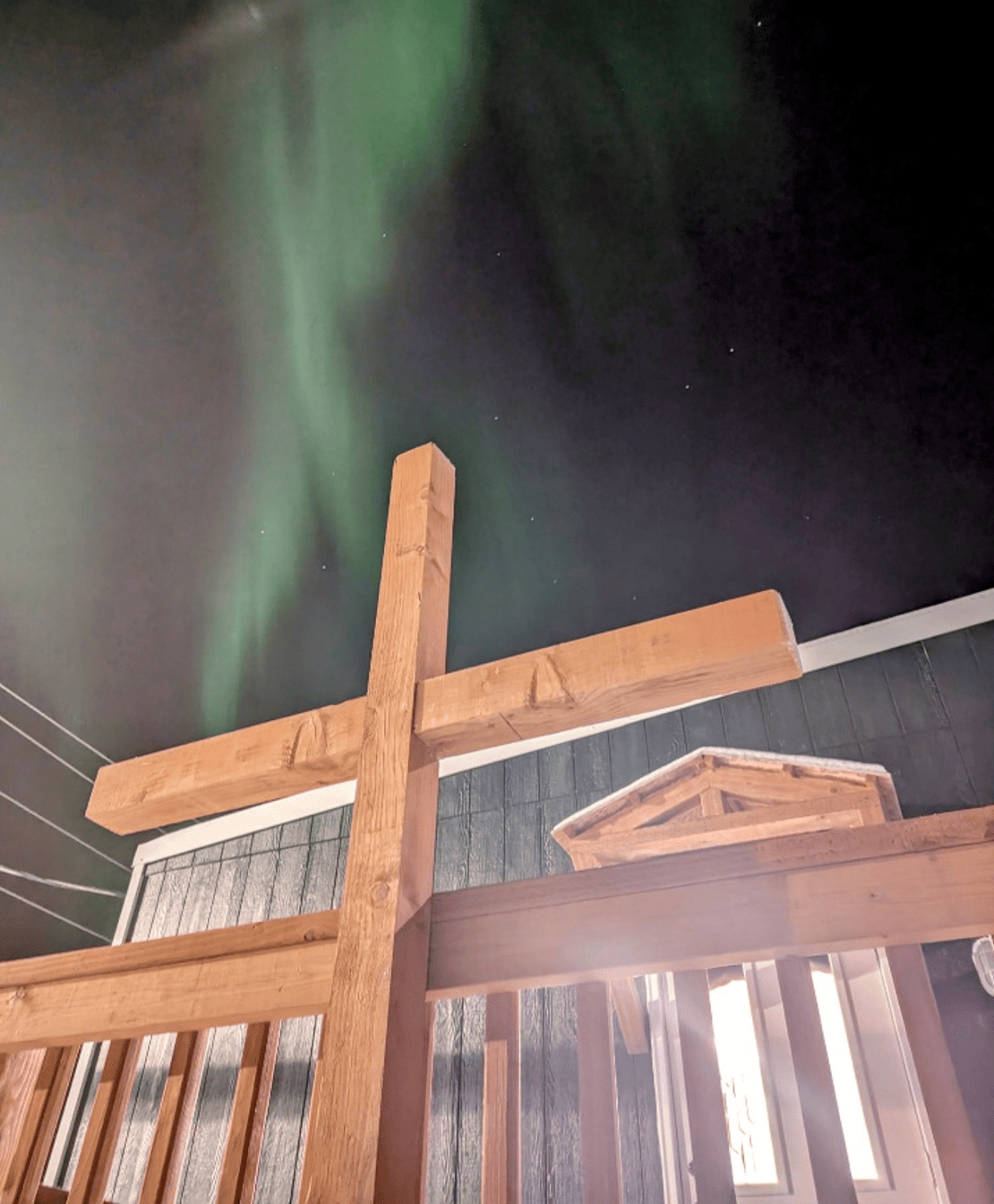HOLIDAYS: A TIME TO EMBRACE AN ETERNAL MINDSET

For some, holidays with family are important, especially with grandkids in the picture. Grandparents, aunts, uncles, moms, and dads sitting around the Thanksgiving dinner table are all accounted for except for that one family in bush Alaska.
On Christmas morning, as grandkids open their gifts under the tree, with hot cocoa in hand, parents and grandparents dote on the young ones with smiles of appreciation for how everyone is together this year—except for that one family in bush Alaska.
And as the Fourth of July rolls around, the summer heat leaves nieces and nephews with sunburnt, happy faces after the afternoon parade. The family sits together under blankets in the darkness, watching the sky light up with colors aglow. Everyone is together once more—except for that one family in bush Alaska.
A Sacrifice Worth Making
For many, choosing an occupation near extended family is a must, so grandparents, aunts and uncles can watch the younger generation grow into adulthood. But for a missionary, this choice is often sacrificed. They’ve chosen to forgo family events and holidays for a purpose that surpasses the comfort of being home—proclaiming Christ to the unreached.
I have been blessed beyond measure with much of my extended family supporting our call to bush Alaska. Their hearts yearn for us as holidays come around, but they also see the importance and urgency of getting the gospel out to the ends of the earth.
Yet the pain is real—on both sides.
From an Adopted Family to an Eternal Family
Here in our small village, holidays are a time for the family units to come together and celebrate. Units range from ten to twenty family members at each holiday gathering—and everyone is related. Except us.

Our village is very gracious, and most families invite us over for the holidays. One year we attended five Thanksgiving meals in one day! Yet as we sit among these generous souls, we remain outside—not for lack of trying to on both sides—but because we aren’t blood-related families. And family is important in both our culture and theirs.

It’s at these moments, sitting in the home of an Athabaskan friend, that we hear stories from childhood. Laughter erupts from those who remember that incident with joy. But for those of us who weren’t there 20 years ago, we smile politely, following the lead of those around us, oblivious to why the memory is even funny.
As a missionary in a strange unfamiliar land, with an unfamiliar culture, we remember to put on eternal lenses as holidays arrive. We aren’t here to fit in or assimilate so deeply into the family units that we can sincerely laugh at memories.
No, we’re here to see God plant a church where family is deeper than blood—where family is deeper than sitting around the Christmas tree exchanging gifts. We’re here to faithfully share the gospel and watch as God works his power on Athabaskan souls to repent and believe. And as people from different families all over our village repent and believe, a lasting family is formed.
This family is one with Christ as the cornerstone, and no 20-year memory is needed to create a joy and bond that lasts. For Christ is that bond.

Here in our village, we aren’t there yet. After a decade of ministering the gospel in the North, the number of souls saved remains small. But perseverance is essential if we desire to see a church planted and a family of God formed here.

And persevere, we shall.
Because Christ is worthy of “sacrificing” hot cocoa on the couch with nieces and nephews opening their gifts. He is worthy even in moments of being in a room with several family members laughing at memories, while we remain on the outside looking in.
These moments will pass, like rain clouds sweeping through the mountain range. What remains forever is the family of God—the church—which we, as missionaries in the North, seek to plant in areas where many refuse to go.
As holidays come and go, may we remember to celebrate the privilege we have as missionaries to proclaim the gospel to unreached people so that one day holidays will be celebrated as the body of Christ—the never-ending, all-surpassing, eternal family of God—the church.
Matthew 8:20, “Jesus replied, “Foxes have dens and birds have nests, but the Son of Man has no place to lay his head.”
Contributed by a SEND North missionary.
Additional Posts




